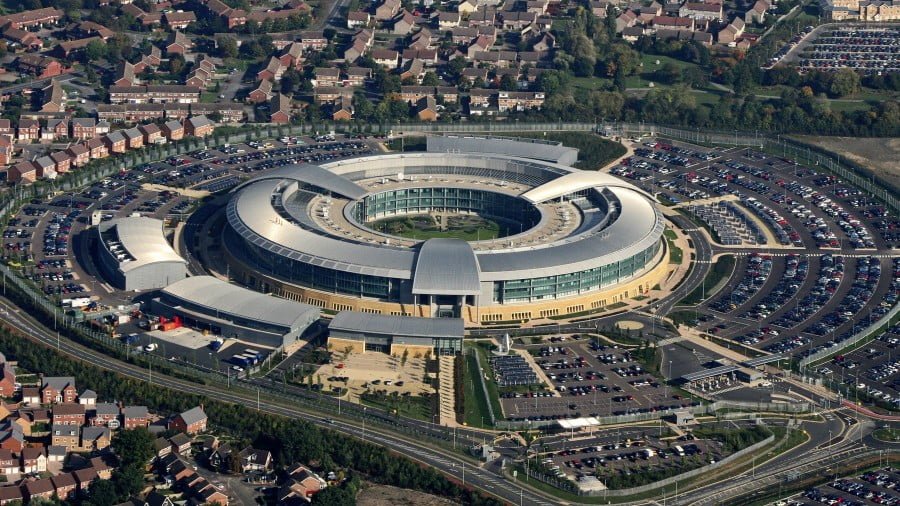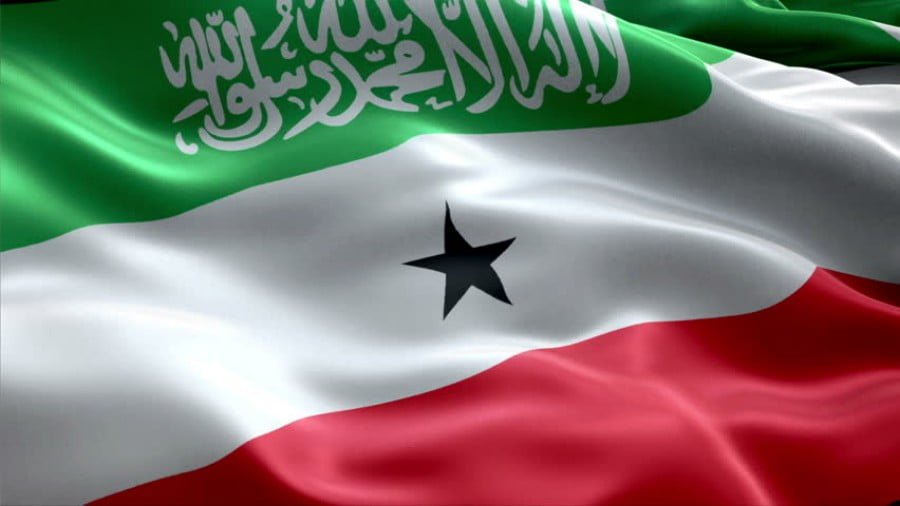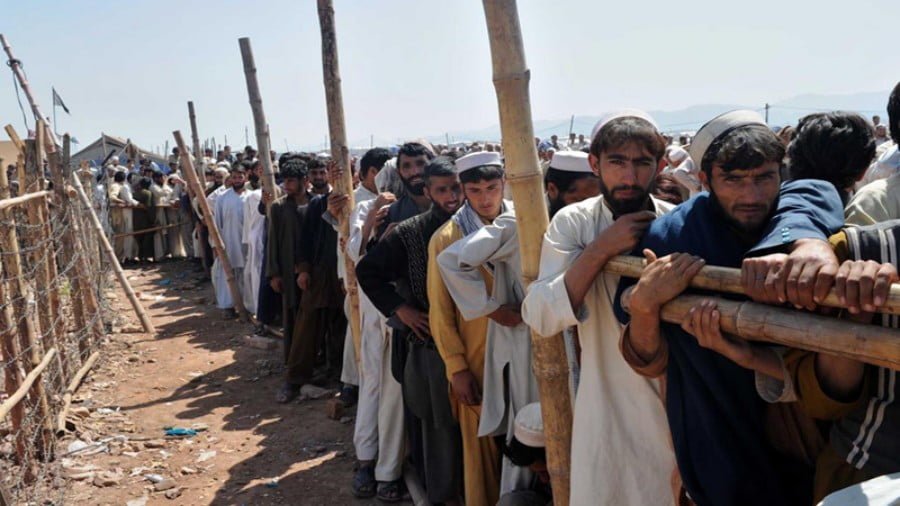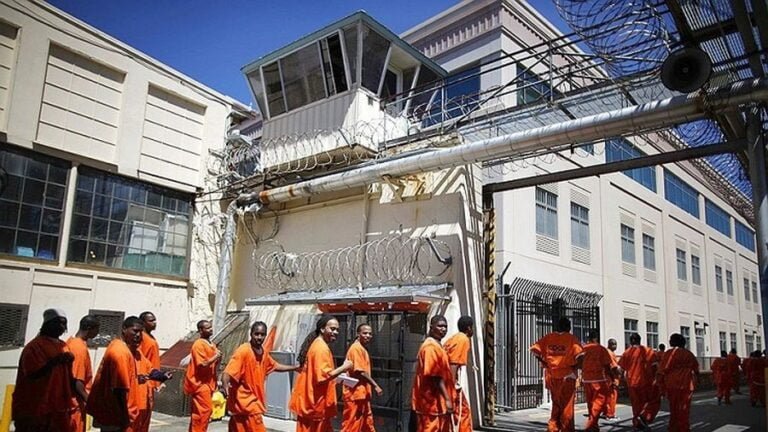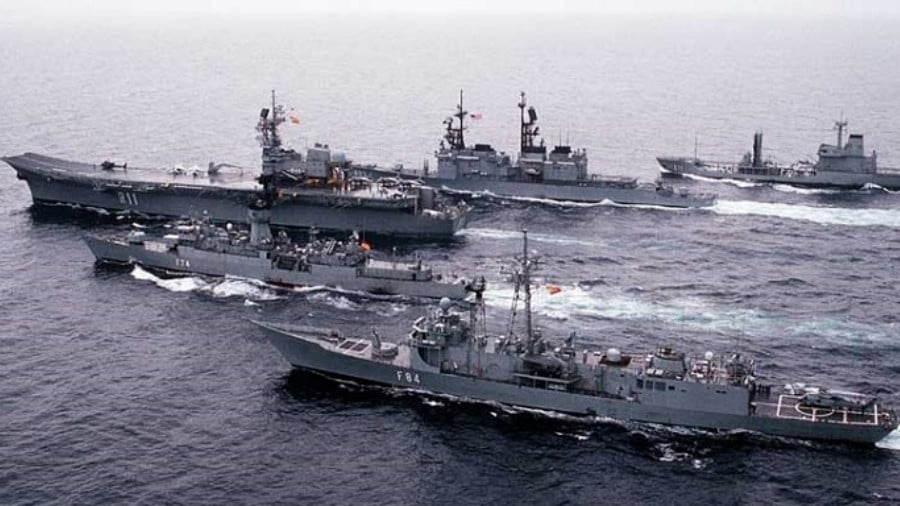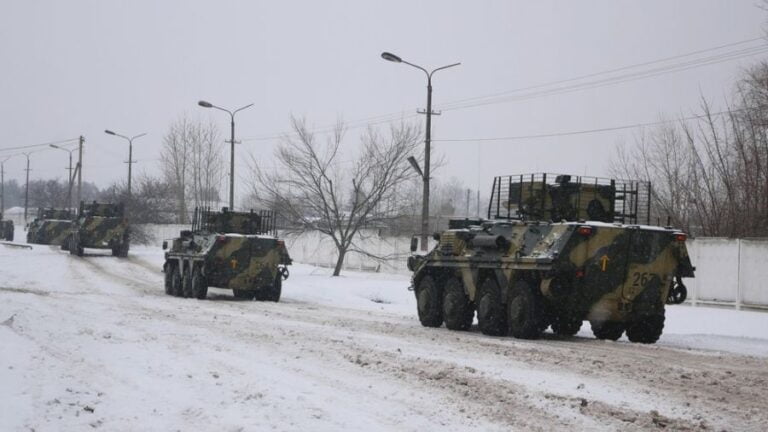As the Saudis Covered Up Abuses in Yemen, America Stood By
The United Nations has long been bullied by its most powerful members, and U.N. secretaries-general have usually been forced to grit their teeth and take it quietly. But few nations have been more publicly brazen in this practice than Saudi Arabia, and earlier this summer, U.N. Secretary-General Ban Ki-moon managed to get in a dig at the Kingdom over its blackmail-style tactics. Ban openly admitted that it was only after Riyadh threatened to cut off funding to the U.N. that he bowed to its demand to remove the Saudi-led coalition in Yemen, where it has launched a harsh military intervention, from a list of violators of children’s rights contained in the annex of his annual Children and Armed Conflict report. “The report describes horrors no child should have to face,” Ban told reporters. “At the same time, I also had to consider the very real prospect that millions of other children would suffer grievously if, as was suggested to me, countries would defund many U.N. programs.”
But the secretary-general wasn’t done. “It is unacceptable for U.N. member states to exert undue pressure,” Ban added. The removal of the Saudis from the list was also, he claimed, “pending review.”
For the United States, it was another reminder of what an uncomfortable ally the Saudi kingdom can be (as was the July release of a hitherto classified section of a 2002 report into the 9/11 attacks that suggested, among other things, that the wife of then-Saudi Ambassador Prince Bandar bin Sultan gave money to the wife of a suspected 9/11 co-conspirator). No one has become more familiar with this awkwardness than the U.S. ambassador to the U.N., Samantha Power, the erstwhile human-rights icon (author of the Pulitzer Prize-winning book, A Problem from Hell) who has been forced to look the other way as a powerful U.S. ally does as it pleases in Yemen with political, logistical and military cover from Washington. Since news broke of Ban’s decision, I have asked Power’s office for a direct response to Saudi funding threats. Neither she nor her staff has ever replied.
Using their oil wealth as a weapon—and tacitly encouraged by their most powerful ally, Washington, which has supplied Riyadh with targeting assistance, logistical support and daily aerial refueling of coalition jets in Yemen—the Saudis have refused to moderate their stance. “The U.S. silence has been deafening in the face of aggressive Saudi bullying to prevent the U.N. from condemning a horrendously abusive military campaign that has killed and maimed hundreds of children,” said Philippe Bolopion, deputy director for global advocacy and former U.N. director at Human Rights Watch. “This blatant double standard deeply undermines U.S. efforts to address human rights violations whether in Syria or elsewhere in the world.”
The U.S. silence has been deafening in the face of aggressive Saudi bullying to prevent the UN from condemning a horrendously abusive military campaign that has killed and maimed hundreds of children.”
Ban’s honesty hasn’t helped Washington. While human rights organizations initially pilloried the lame-duck secretary-general—he leaves office at the end of 2016—for bowing to the intimidation of a wealthy donor, many diplomats and U.N. observers said Ban also set an important precedent for calling out powerful member states.
In June, after Ban went public, State Department spokesperson Mark Toner did make one oblique comment, that the U.N. “should be permitted to carry out its mandate, carry out its responsibilities, without fear of money being cut off.” The U.S. itself, however, has already set a precedent for doing just that: after the U.N.’s cultural agency, UNESCO, recognized Palestine in 2011, the United States suspended its contributions worth $80 million annually, or more than a fifth of the agency’s budget. Both the Saudi threat and the U.S. pinch on UNESCO, like the perennial menace of vetoes on the Security Council, undermine the authority vested in the U.N.
U.S. support for the Saudis in Yemen has weakened Washington morally at the U.N., allowing Russia and other countries to call the Americans hypocritical for “politicizing” Syrian humanitarian access while supporting a coalition that is blockading anntire country, helping to worsen what in Yemen is numerically the worst humanitarian crisis in the world, according to U.N. figures for those in need of aid. While the U.S. has highlighted the toll of Russian bombs in Syria, it has been less willing to criticize Moscow’s use of cluster munitions. The weapons are widely banned internationally under a U.N. treaty, but the Pentagon maintains they can be used appropriately. The Saudis offer a prime example of their reckless use in Yemen, where they’ve unleashed them in populated areas. The more flagrant the Saudis are in their behavior, the harder it is for Washington to bury the underlying hypocrisy of its support.
This February, amid a deadly Russian air campaign in support of regime forces aiming to encircle Aleppo, the Security Council met urgently on the humanitarian situation in the city and elsewhere in Syria. But upon leaving the session, Russian Ambassador Vitaly Churkin used the Yemen card, telling reporters, “We are going to propose weekly meetings on the humanitarian situation in Yemen.”
However, when subsequent discussions on Yemen appeared poised to yield a resolution on humanitarian access in the country, the Saudis and other Gulf States met with diplomats from the U.S., France and the United Kingdom to complain. Unlike Syria, for which a similar resolution was passed, no such resolution has been mustered by the Council for Yemen.
The Saudi threat to cut vital funding streams—delivered forcefully, and directly by Riyadh’s foreign minister to Ban and his top political adviser—should come as little surprise to anyone who has watched Saudi Arabia’s erratic and often abusive relationship with the U.N. since the Saudis began bombing Yemen last March.
There is another reason the U.S. has said little about the strong-arm tactics employed by Saudi Arabia: The hypocrisy might be too much to take.
As Saudi behavior grew more careless publicly, both on the ground in Yemen in the halls of the U.N., the silence from Washington, and at the U.S. mission to the U.N. in New York, continued. Ambassador Power even found herself defending an intervention in Yemen that has killed thousands of civilians, coincided with the spread of Al Qaeda, and undercut her own passionate work to draw attention to the crimes of the Assad regime in Syria.
But there is another reason the U.S. has said little about the strong-arm tactics employed by its closest Arab ally: The hypocrisy might be too much to take. Just last year, the U.S. was instrumental in keeping Israel off the very annex the Saudis found themselves on this month. Leila Zerrougui, the U.N.’s special representative for children and armed conflict, had endorsed the inclusion of both the Israeli Defense Forces and Hamas on the blacklist. In the end, neither was, but the pressure exerted by Washington and Israel occurred largely behind the scenes, according to diplomatic norms that are now under the spotlight.
The Saudi intervention has a great deal to do with Riyadh’s fears of its great regional rival, Iran, which has backed the Shia Houthi rebels in Yemen. It began last March when, following rapid advances of the Houthis, who are allied with former Yemeni President Ali Abdullah Saleh, the new Saudi King, Salmon, announced a hastily formed coalition of Sunni Arab states. His son, deputy Crown Prince Mohammed Bin Salman—more recently the darling of the financial press for his consulting-firm endorsed plans to reform the Saudi economy—was put in charge of the campaign. The coalition’s nominal goal was to reinstate Saleh’s post-Arab Spring successor, Abd Rabbuh Mansur Hadi, who had fled the country, but also to counter the rise of the Houthis as a proxy of Iran.
With the help of the U.S. military, Riyadh was able to impose a blockade, by air and sea, and commence attacks on their southern neighbor. Prior to the war, Yemen was already the poorest country in the Arab world and soon commercial stocks of food and fuel, as well as drugs and other medical supplies, were running dangerously low. By September, the U.N. estimated Yemen was receiving just 1 percent of the fuel imports it required. Today, more than 21 million people in Yemen are in need of some form of humanitarian assistance and half the population suffers from food insecurity and malnutrition—figures that dwarf Syria’s.
Another early casualty of the blockade was the access often afforded by the U.N. to foreign journalists and human rights officials working for nonprofit groups like Human Rights Watch and Amnesty International. In May, two months into the Saudi intervention, and as the civilian death toll in Yemen approached 400, senior U.N. officials in Yemen decided that neither group would be allowed on U.N. flights into and out of the country. At the time, seats on commercial routes operated by the national carrier Yemenia Airway were difficult or impossible to obtain—when the planes ran at all. Those flights were routed through Saudi Arabia, where officials have oversight of passenger manifests.
The U.N. also maintained its own chartered plane, large enough to fit 27 or 28 people, that had begun flying several times a week between Djibouti and the Houthi-controlled Yemeni capital of Sanaa. But journalists and human rights NGO workers were banned from those flights as well; U.N. officials based in Yemen, Europe and New York, who spoke on condition of anonymity, and several aid workers said the policy stemmed from the Saudi rejection of a single flight manifest earlier in May that contained several journalists, including reporters from the New York Times and BBC.
Several U.N. staffers suggested the decision seemed to go against Ban’s Human Rights up Front agenda. That initiative, meant to give special privileges to human rights reporting, civilian protection and the prevention of “large-scale” violations of international law, was introduced largely in response to the organization’s inaction during the last months of Sri Lanka’s civil war in 2009 in which tens of thousands of civilians were killed.
Even those aid workers and U.N. staff that were allowed in have found their trips are dependent on the Saudi government, which approves or denies access for all U.N. flights.
“Should the U.N. allow a government to accept such restrictions, which clearly restrict access to beneficiaries?” asked one aid worker, who spoke anonymously in order to protect their organization’s continued access in Yemen.
Some journalists instead undertook dangerous journeys by sea into Yemen from the African coast. One reporter, Matthieu Aikins, on assignment from Rolling Stone with a cameraman, was smuggled into the country on a 23-foot-long vessel—becoming one of the first Western journalists to break through the blockade and document the toll of the air war. Aikins said that prior to his departure from Djibouti, U.N. officials told him that the Saudis were no longer allowing foreign journalists to travel to Yemen. Donatella Rovera, senior crisis response adviser at Amnesty International, said she was booked on a flight from Djibouti to Sanaa in late June, before being told “last minute that we were off the list”—forcing her to find alternative travel through Jordan.
As journalists and human rights workers struggled to gain entry into Yemen, the news that did emerge grew direr. In May, Human Rights Watch first reported the use of cluster munitions by the coalition, and by the second half of that month, the U.N. had recorded 1,037 civilian deaths since the start of the Saudi intervention. Many of those deaths were the result of wild and indiscriminant Houthi anti-aircraft fire, but hundreds more were caused by Saudi airstrikes. It was increasingly clear that war crimes could be taking place, but another month would pass before more international journalists began to trickle into the country.
At the U.N. in New York, a new humanitarian chief, Stephen O’Brien, took office at the end of May, inheriting crises in Yemen, Syria and South Sudan, and massive funding gaps across the board. There was one bright spot, or so it seemed—on April 18, the Saudi government pledged to meet a $274 million U.N. “flash appeal” for Yemen, requested just the previous day. But the negotiations that followed, and foot-dragging on the part of the Saudis, would set a pattern for the coming year when Riyadh’s diplomats repeatedly embarrassed O’Brien and his office. Desperate for a steady stream of Gulf money, U.N. officials were accommodating toward the Saudis, a stance that became increasingly dissonant as the civilian toll of their bombs escalated, and the coalition’s blockade meant the U.N. would have to serve ever more famished Yemenis.
“It’s obvious the Saudis were paying and bullying everyone who dared to say anything, and the U.N. unfortunately was boxed in,” said the senior U.N. political official.
It’s obvious the Saudis were paying and bullying everyone who dared to say anything, and the UN unfortunately was boxed in.”
That October, after the Saudis finally announced agreements with nine U.N. agencies to disburse the money (the terms of which have never been made public), Riyadh undertook an elaborate press junket in New York, lauding its humanitarian programming in Yemen. Looking glum and uneasy, U.N. humanitarian chief O’Brien highlighted the U.N.’s relationship with the Saudis’ King Salman Humanitarian Aid & Relief Center. By then, the U.N. had recorded 2,355 civilian deaths in Yemen, the majority from coalition airstrikes, which O’Brien that summer told the Security Council had in some cases violated international law. It later became clear that the Saudi delegation had effectively dragged O’Brien to the U.N. briefing room after a meeting in Ban’s office upstairs.
The U.N., O’Brien told reporters, couldn’t afford to turn down any aid, including from Saudi Arabia, “because that is existential.”
It was during the same junket, at a separate event in New York, where Riyadh’s ambassador to the U.N., Abdallah al-Mouallimi, admitted for the first time, to this reporter, that the coalition had bombed a Doctors Without Borders (MSF) hospital in northern Yemen earlier that week (the bombing took place almost at the same time as O’Brien’s news conference with the Saudis). The ambassador, however, blamed MSF for providing incorrect coordinates. A miniscandal ensued, during which the ambassador falsely claimed to reporters that he had been “misquoted or the quotations were taken out of context.” On several other occasions, Mouallimi has denied the use of cluster munitions by the coalition, despite extensive documentation by human rights groups and journalists. He routinely calls into question any U.N. reporting indicating the Saudi coalition has killed civilians, even as that number surpasses 2,000.
Other powerful U.N. member states, like Russia, are well known in U.N. circles for performing elegant logical contortions when confronted with incriminating evidence, such as the civilian toll from Moscow’s strikes in Syria. But the Saudis are inexperienced and can appear petulant in the spotlight. Last year was also perceived as a low point in the Kingdom’s history: The Iran nuclear deal it lobbied against was signed; its interests in Syria took a serious blow as Russia acted to prop up the Assad regime; oil prices bottomed out around $30 per barrel; and its intervention in Yemen was not only attracting unwanted attention, but was by most measurements a failure.
One Western diplomat recalled how expertly the U.S. and Israel were able to pressure Ban into removing Israel from the same Children and Armed Conflict annex—a development that angered many, but garnered far less attention. Not so for the Saudis. “It’s the difference between how big corporations handle things and how the Corleones handle things,” said the diplomat.
Their erratic behavior came to a head in February, when Saudi officials sent a series of letters to the U.N. and aid organizations, warning them to leave areas under Houthi control. If taken literally, that meant the majority of Yemen’s populated areas, including Sanaa, where U.N. operations were headquartered. A first letter, sent on February 5 to O’Brien’s agency, Office for the Coordination of Humanitarian Affairs (OCHA), ominously asked that the U.N. “notify all the international organizations working in Yemen about the necessity of relocating their headquarters outside the military operations area to be away from regions where the Houthi militias and the groups belonging to them are activating, in order for the Coalition forces to guarantee the safety and security of the international organizations.” Another letter, marked “urgent” was sent directly to NGOs from the Saudi Embassy in London.
O’Brien responded within 48 hours, reminding Saudi Arabia of its obligations under international humanitarian law, and explaining that the U.N. would continue to serve Yemen’s communities. In a subsequent letter to the OCHA chief, Mouallimi walked back Saudi demands, clarifying that humanitarian workers should not be near military bases belonging to the Houthis and supporters of Saleh—still a vague assertion when 2,000-pound bombs are in play. To aid workers in Yemen, the unprompted Saudi communications showed, at best, a country dangerously fighting war from the hip, making things up as it went along. Even if the letters were simply an attempt to comply with international law gone awry, humanitarians already had reason to be concerned: just weeks earlier, a leaked Security Council Panel of Experts report counted 22 coalition attacks on hospitals during the war.
A month later, in March, as the Children and Armed Conflict report was first passed among diplomats, there was separate talk in the Security Council of a humanitarian resolution aimed specifically at Yemen, potentially with explicit language on the protection of civilians. Mouallimi, evidently concerned about the prospect, called a news conference in the same briefing room, which he moderated on his own—a rarity for most ambassadors. There he told reporters in no uncertain terms that O’Brien’s Office for the Coordination of Humanitarian Affairs had, in fact, told him that there was no need for such a resolution. “You can quote them on that,” he said, speaking for the U.N.
Less than two weeks after the news conference, Saudi-coalition jets killed more than 100 civilians in a market in northwest Yemen, according to U.N. investigators.
“It would seem the coalition is responsible for twice as many civilian casualties as all other forces put together, virtually all as a result of airstrikes,” said U.N. human rights chief Zeid Ra’ad al Hussein, in the aftermath of that attack.
In September, as the civilian toll in Yemen continued mounting, Zeid had called for an independent, international inquiry into the conflict. At the Human Rights Council in Geneva, Dutch representatives introduced a resolution that would have created such a body, only to see their support melt away in the face of intense pressure from the Saudis and their allies. Instead, the council passed a Gulf-authored resolution endorsing a national investigation controlled by the exiled Hadi government. That inquiry was widely seen as biased and unequipped, and moreover had no access to most of Yemen.
According to diplomats, the U.S. was largely quiet during negotiations over the text, allowing the Saudis to bully the Netherlands—literally sitting with them at a coffee table and crossing out sections of the resolution the U.N. human rights chief wanted.
The Yemeni government investigation favored by the Human Rights Council has yet to release any findings. The U.S., which has sold more than $100 billion in arms to the Saudis since 2010, and which continues to support the coalition with targeting and indispensable refueling flights and logistics, defers to the Saudis when asked about investigations into civilian casualties. When it was released on June 2, Ban’s annual Children in Armed Conflict Report confirmed what many diplomats had already seen when the text was distributed as a draft months earlier: that the coalition was responsible for 60 percent of child deaths—some 510 were killed by the coalition—and injuries in 2015. In the annex that accompanies the report, Ban added the Saudi coalition, along with other parties to the conflict in Yemen, including the Houthis and Al Qaeda.
The response was quick: According to senior U.N. officials, several Gulf allies complained to the U.N. about the report, and Saudi Foreign Minister Adel al-Jubeir called Ban over the weekend to express his displeasure. Nevertheless, on Monday, Ban spokesperson Stephane Dujarric told journalists that no part of the report would change in any way. That afternoon, Jubeir called again, this time dialing Under Secretary-General for Political Affairs Jeffrey Feltman, a former U.S. State Department official who is now Ban’s top political adviser. Feltman, according to diplomats, communicates regularly with Power, although it’s unclear to what extent she was aware of the Saudi messages.
Jubeir relayed far stronger threats to Feltman, including the specter of a break in relations with the U.N. and cuts worth hundreds of millions of dollars to vital U.N. programing including to the organization’s relief agency in Palestine. Saudi Arabia is one of the largest donors to the U.N., funding a number of additional programs in the Middle East. In 2014, Jubeir, then the ambassador to Washington, announced $500 million to assist Iraqis displaced by the Islamic State.
But financial coercion is also a habit of Jubeir’s: According to the New York Times, earlier this year he told U.S. officials and politicians in Washington that Riyadh would sell hundreds of millions in Treasury bonds and other American assets if Congress passed legislation making it easier for the Saudi government to be sued for alleged involvement in the 9/11 attacks.
Shortly after Jubeir’s call to Feltman, Ban’s office announced the coalition would be removed from the annex pending review. At the U.N., Mouallimi said the Saudis were vindicated, and he called the decision “final and unconditional.”
The Saudis might have had reason to be angry. In emerging as a top donor, they have come to expect the same respect that other large donors like the U.S., European Union and Japan enjoy. The U.S., meanwhile, has a history of politicizing its donations, exemplified by the UNESCO cut. And Russia, which has killed hundreds of civilians in Syria—many of them children—was not fingered in Ban’s most recent report. The Houthis, as this month’s report does make clear, are also responsible for gross violations of human rights.
On June 9, after days of outcry from human rights groups, Ban gave his news conference in which he essentially conceded that the decision to take the Saudis from the annex was made to protect U.N. financing, and not because of the merits of Riyadh’s complaints.
On June 9, Ban essentially conceded that the decision to take the Saudis from the annex was made to protect UN financing.
A flummoxed Mouallimi spoke soon after, and, once again, rebutted Ban. The ambassador told reporters that “undue pressure was not exercised,” and he insisted that “the conclusions [of the report] have now been changed.” In fact, according to Ban, the findings of the report, including that 60 percent of child casualties in Yemen were caused by the Sunni coalition, will not be changed. Only the annex was altered to excise the Saudis—and temporarily, pending a review and the furnishing of additional documentation from the coalition. But instead of doing that, the Saudis themselves asked the U.N. to reveal the sources of information used in the report, which was denied.
Richard Gowan, a fellow at New York University’s Center on International Cooperation and longtime U.N. researcher, said Ban’s words in July amounted to a rhetorical coup.
“Very few diplomats or U.N. officials dare call them out for their behavior,” Gowan said of the Saudis. “At least this incident has highlighted their tactics.” He added: ”Ban has managed to avoid a total breakdown with Riyadh, yet in doing so still shone a spotlight onto both their behavior in Yemen and their behavior at the U.N.” he added.
There are further signs the U.N. may be changing its tune in Yemen. After POLITICO raised the question of access to flights by the U.N. Humanitarian Air Service, the U.N. said that the current humanitarian coordinator for Yemen, Jamie McGoldrick was “fully seized of the concern on the use of UNHAS by human rights organizations.”
“He believes that they, as important humanitarian partners particularly as concerns protection work, should have access to U.N. air services.” The statement added that McGoldrick was “finalizing” discussions “with relevant organizations and hopes to have a positive change to the current approach.”
But there are also signs that the Saudis aren’t keen to change their habits. Earlier this month, at the tail end of trip to the U.S., Prince Bin Salman showed up 45 minutes late for a meeting with Ban, pushing back the rest of the secretary-general’s meeting that day. In a statement following a photo-op, Ban’s office said he was still “open to receiving any new elements from Saudi Arabia,” relevant to the Children and Armed Conflict report.
Two weeks ago, Jubeir met again with Ban, after which the secretary-general’s office said he “welcomed the Coalition’s readiness to take the necessary concrete measures to end and prevent violations against children.” Ban’s office said they wanted the information before a vital Security Council debate on Children and Armed Conflict on August 2.
A separate letter sent by Zerrougui’s office to the Saudis at the end of June, and obtained by POLITICO, was more explicit. Saudi Arabia was expected to “communicate to the United Nations the commitments, measures and actions that it will undertake” in several areas, including in the “reduction of child casualties,” by July 18. That, according to the letter, would help “enable the Secretary-General to report on positive steps that have been taken following his decision to temporarily remove the coalition from the annexes to the report.”
Judging by the language, it appeared to be giving the Saudis a retroactive and permanent way off the list.
Source: politico.com


